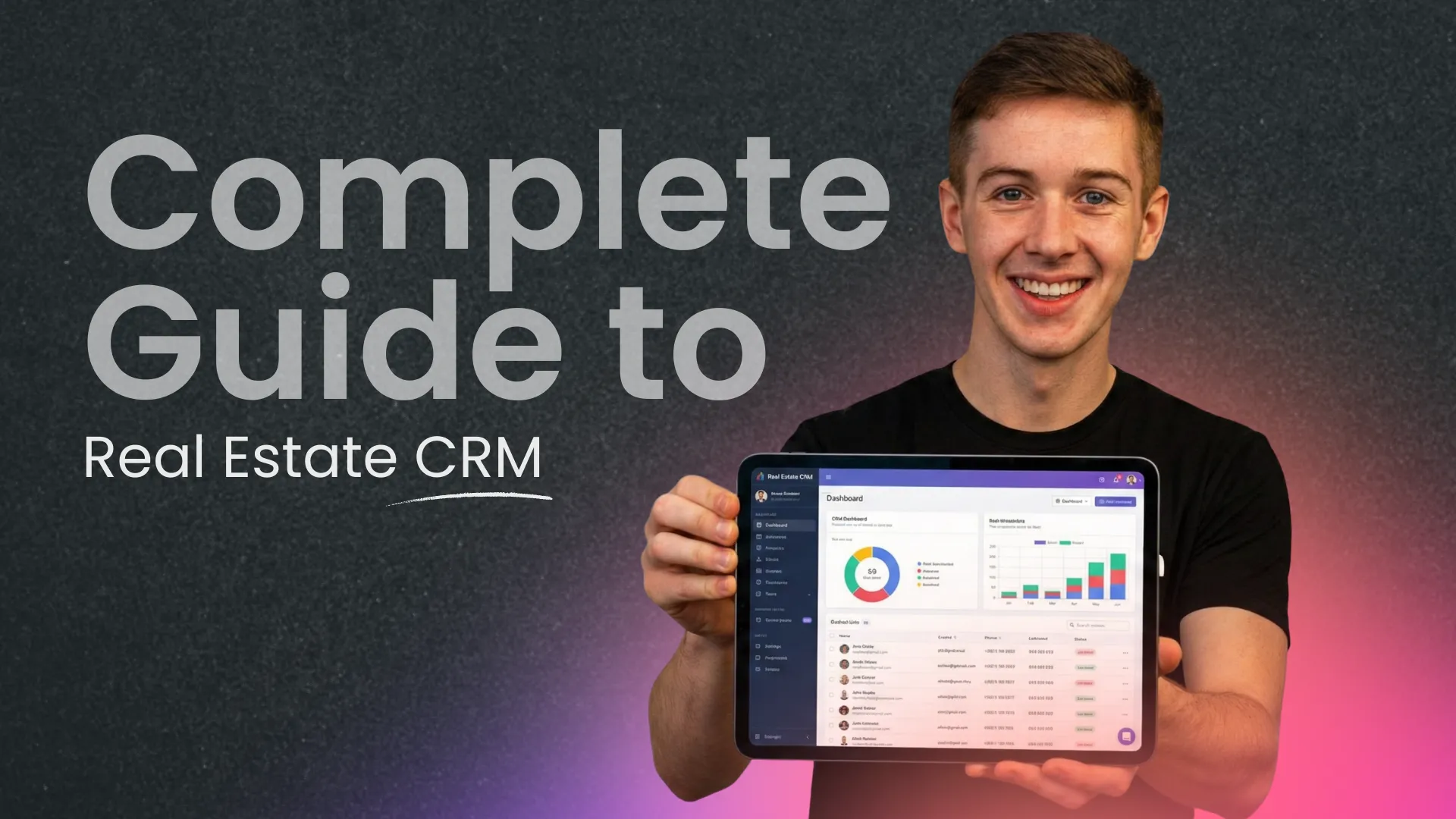
An AI website builder for authors streamlines the process of creating a professional online presence without requiring coding skills. These tools offer tailored templates, AI-driven content suggestions, and easy customization so authors can quickly showcase their work and connect with readers. AI website builders help authors save time while producing attractive, functional websites that reflect their brand and writing style.
Authors benefit from features like drag-and-drop editors, built-in marketing tools, and seamless integrations with platforms such as Amazon. AI also assists in content creation, layout design, and site optimization, making it possible to launch and maintain a site with minimal effort. This approach supports both new and experienced writers in building a credible digital footprint efficiently.
Launch Your App Today
Ready to launch? Skip the tech stress. Describe, Build, Launch in three simple steps.
BuildWith various options available in 2025, authors can choose tools that best fit their needs, whether they want maximum control or a fully automated setup. The focus remains on empowering authors to highlight their literary works and engage an audience through a modern, well-designed website.
What Is an AI Website Builder for Authors?
An AI website builder for authors uses artificial intelligence to simplify creating and managing an author’s online presence. It combines automation and customization to provide professional-grade sites without the need for coding skills. These tools cater specifically to writers, emphasizing features like showcasing literary works and reader engagement.
Defining AI Website Builders
AI website builders automate the design and layout process by interpreting user input to generate tailored websites. For authors, this means selecting templates optimized for displaying books, biographies, events, and blogs. The AI adjusts elements such as graphics, typography, and navigation smoothly with minimal manual intervention.
They require zero-code knowledge, allowing authors to focus on content rather than technical setup. Many builders integrate drag-and-drop editors for those who want further control. The result is a fully functional, polished website created in minutes, guided by algorithms that ensure visual and functional consistency.
Benefits for Authors
Authors benefit from AI website builders primarily through time savings and ease of use. These tools eliminate the need to hire developers while still delivering professional-grade quality suitable for marketing and sales.
Built-in features often include SEO support, social media integration, and e-commerce capabilities for selling books directly. Customizable templates designed with writers in mind enable authors to highlight portfolios, update event calendars, and maintain blogs easily. Using AI also reduces design guesswork, helping authors present their personal brand clearly and consistently.
Comparison to Traditional Website Builders
Traditional website builders require manual design choices, coding knowledge, or hiring professionals, which can be time-consuming and costly. In contrast, AI website builders automate much of the process by generating initial designs powered by user input and AI algorithms.
While traditional builders offer customization, AI builders add automation for layout and content suggestions based on best practices, speeding up development. This makes them more accessible for authors lacking technical skills. Both often provide drag-and-drop functionality, but AI website builders focus more on reducing setup time while maintaining professional standards.
How AI Website Builders Empower Authors
AI website builders provide authors tools that reduce technical barriers and accelerate the process of creating professional online platforms. These builders help translate an author’s ideas into clear website structures and offer tailored design options that reflect their unique literary brand.
Streamlined Content Creation
AI website builders simplify the initial setup by generating an AI-Generated Blueprint based on the author’s input. Authors start by describing their idea, such as the genre, target audience, or desired website features. The AI analyzes this and creates a tailored site structure including pages like “About the Author,” “Books,” and “Blog.”
This process eliminates guesswork about layout or essential content sections, letting authors focus on writing rather than web design. Many builders also assist with automatically populating content placeholders, suggest SEO keywords, and optimize readability. Authors with limited technical skills can launch a polished site quickly and with minimal manual setup.
Personalized Design Options
These platforms offer customizable templates designed specifically for authors, allowing them to match their website’s aesthetic to their literary style. Options include font selection, color schemes, and image placements aligned with the author’s brand identity.
AI tools analyze an author’s preferences and content to recommend layouts that enhance user engagement. This can include book showcases, event calendars, or newsletter sign-ups. Customization remains intuitive through drag-and-drop editors or simple toggles, requiring no coding knowledge.
Authors can also upgrade to paid plans for advanced design features, enabling full control over styling, multimedia integration, and additional marketing tools to connect effectively with readers.
Key Features to Look For
An effective AI website builder for authors combines ease of use with powerful tools that support both creative presentation and business needs. Essential features include intuitive design controls, access to specialized templates for literary content, and robust analytics capabilities that enable authors to track and improve their web presence.
Drag-and-Drop Functionality
Drag-and-drop functionality is crucial for authors who may lack technical skills but want precise control over their website layout. This feature enables users to arrange elements like text blocks, images, and buttons visually, without requiring coding knowledge.
A good drag-and-drop builder offers responsive design options, ensuring that pages look professional on both desktop and mobile devices. It often includes pre-built content blocks tailored for authors, such as book showcases, event calendars, and newsletter signup forms.
Simple interfaces reduce the time needed to create or update a site, which is vital for authors balancing writing and promotion. The ability to undo changes or save templates also adds convenience and security to the design process.
Template Libraries
A diverse and customizable template library targeted at authors enhances the website’s effectiveness. Templates designed specifically for author websites often feature layouts optimized for highlighting books, author bios, and blog posts.
These templates integrate multimedia support, allowing for book cover images, audio excerpts, and video interviews. They also accommodate varying levels of customization so authors can maintain brand consistency without sacrificing usability.
Template libraries with AI-driven recommendations adjust based on the genre or the author’s goals, such as selling books or building mailing lists. This focus helps authors select layouts that improve reader engagement and professional appearance right from the start.
Analytics Integration
Analytics integration empowers authors with insights about visitor behavior, helping refine marketing efforts and website content. Advanced analytics dashboards track metrics like page views, visitor sources, and time spent on specific pages.
Some AI builders offer built-in analytics tools, while others support integration with third-party services such as Google Analytics. Authors benefit from features like real-time reporting, user segmentation, and conversion tracking.
Security and compliance are important when collecting visitor data. Reputable AI builders include GDPR and SOC2 compliance, ensuring data is handled responsibly. This protects both the author and their audience from privacy risks and legal issues.
Spotlight: Imagine.bo Overview
Imagine.bo stands out by allowing users to build software products without coding through a chat-based interface. It emphasizes simplicity, fast app launches, and ongoing expert support, all within a transparent cost structure.
Unique Approach to No-Code Development
Imagine.bo uses a chat interface where users describe their idea in natural language. This no-code approach transforms text commands into functioning software or websites with a single click, known as the One-Click Build feature.
This method removes the need for a developer team, speeding up the product creation process. It is designed to be intuitive for authors who want to create customized sites or applications without technical barriers. The chat-based system guides users throughout, making complex tasks accessible for novices.
Expert Support and Team Collaboration
Alongside automation, Imagine.bo offers Expert Backup services. Users can access professional help when needed, ensuring projects move smoothly from concept to deployment. This expert involvement is helpful for troubleshooting and refining features.
Collaboration tools support team workflows, allowing multiple users to contribute ideas and feedback in real-time within the chat environment. This hybrid model of AI assistance plus human expertise balances autonomy and quality control, important for authors managing web developments alongside writing.
Pricing and Availability
Imagine.bo features Clear Pricing models. Pricing plans are straightforward, avoiding hidden fees and allowing users to select options based on their project size and requirements.
Currently, Imagine.bo operates under a Private Beta phase, where new users may gain limited access while the platform refines features. Early adopters benefit from exclusive offers and can influence development priorities through feedback.
This phased availability ensures a reliable and evolving service targeted at creators seeking a hassle-free software-building experience.
Scaling and Deployment Options
AI website builders for authors must support both smooth deployment and the ability to scale as their audience grows. Efficient integration with cloud services and techniques to handle increased site visits are critical for maintaining performance and functionality.
Cloud Service Integration
Many AI website builders leverage scalable infrastructure offered by cloud providers such as AWS, Google Cloud Platform (GCP), and Vercel. These platforms provide flexible resources like serverless functions, content delivery networks (CDNs), and managed databases to optimize site speed and reliability.
AWS offers extensive tools for scaling backend services automatically, while GCP emphasizes strong data analytics and machine learning capabilities. Vercel focuses on frontend deployment, providing seamless integration with frameworks and global edge networks.
Authors benefit from these integrations through improved uptime, faster load times, and easy deployment pipelines. The choice depends on whether the builder prioritizes backend scalability or frontend performance.
Managing High Traffic
Handling high traffic is essential when an author’s site gains popularity due to book launches or viral content. AI builders typically implement autoscaling features that adjust computing resources dynamically based on real-time demand.
Caching strategies, such as storing frequent content on CDNs, reduce server load and decrease page load times. Load balancing distributes incoming traffic across multiple servers to avoid bottlenecks.
Additionally, AI-based SEO tools and image compression work together to optimize site performance under heavy traffic. Effective monitoring and security measures also protect against disruptions during peak visitor periods.
Security and Compliance for Author Websites
Author websites must prioritize robust security measures and compliance standards to protect both their content and user data. This includes features that guard against common threats and meet legal requirements such as GDPR and SOC2.
Built-In Security Features
AI website builders for authors often include essential security protocols by default. These features typically involve SSL encryption, which secures data transmitted between the site and visitors, preventing interception or tampering.
Many platforms also offer automatic backups and firewall protection to reduce the risk of data loss or intrusion. Continuous security scans help detect vulnerabilities and malware before they can affect the site.
Additionally, some builders integrate two-factor authentication (2FA) to add an extra layer of security for author accounts. This safeguards user credentials and prevents unauthorized access, especially critical when managing sales or personal information on the site.
GDPR and SOC2 Compliance
Compliance with data protection laws is crucial for author websites, especially those targeting readers in Europe. GDPR mandates strict rules on data collection, storage, and consent, requiring websites to handle personal information transparently and securely.
AI builders often provide tools to help authors implement cookie consent banners and manage privacy policies that meet GDPR standards. These tools simplify compliance by automating user consent collection and data access requests.
SOC2 compliance is targeted more at service providers hosting the websites. It ensures the platform maintains strong controls over security, availability, processing integrity, confidentiality, and privacy. Authors benefit from this assurance that their website builder follows established standards for protecting customer data and operational reliability.
Getting Started with an AI Website Builder
Starting with an AI website builder involves specific steps that help authors quickly create a professional online presence. These steps usually include joining waitlists or beta programs and going through an onboarding process designed to simplify setup and customization.
Joining Waitlists and Beta Programs
Many AI website builders launch new features or platforms through waitlists or beta programs. Authors often need to sign up early to gain access before public release. This approach ensures creators receive timely updates and priority support.
Joining a waitlist typically requires submitting basic information like name, email, and author category. Some builders may ask about website goals to tailor the experience. Beta programs often limit users to test new functionalities and provide feedback, improving the tool’s stability and usability.
Being on a waitlist or in a beta program also grants early access to promotions or discounts not available to general users. Staying engaged with provider communications is important to secure a spot and be ready when invitations arrive.
Onboarding Process
After gaining access, the onboarding process guides authors through initial setup, usually incorporating a mix of automated tools and user input. Many platforms use questionnaires or simple Q&A flows to understand the author’s style, genre, and content focus.
The onboarding often includes selecting templates designed specifically for authors, complete with sections for books, blogs, events, and contact information. AI builds much of the site automatically, populating text and images based on the answers provided or existing data.
Authors can customize layouts, colors, fonts, and images without coding. Onboarding also typically covers essential features such as SEO settings, social media integration, and basic site analytics. Clear prompts and tips throughout ensure users progress efficiently from setup to launch.
Who Can Benefit Most from AI Website Builders?
AI website builders serve distinct groups by simplifying design and content creation while saving time. Their features adapt well to those working independently as well as to small teams managing multiple projects.
Single Authors and Solo Makers
Individual authors and solo makers gain from AI website builders by quickly generating professional sites without technical skills. These tools automate layout design and content creation, allowing them to focus on writing instead of coding.
Built-in SEO features help users optimize pages to boost visibility with minimal effort. Customizable templates ensure the website aligns with an author’s personal brand or genre. Automated content suggestions and AI writers can help create blog posts or promotional material efficiently.
They benefit most from cost-effective solutions that reduce the need to hire developers. Fast setup and simplified editing mean launching or updating a site requires less time, which is crucial for authors balancing writing and marketing.
Agencies and Collaborative Teams
Small agencies and collaborative teams managing multiple client projects use AI website builders to streamline workflow. These platforms allow simultaneous development of distinct websites while maintaining consistency through reusable templates and centralized design control.
AI features support faster content generation and page configuration for diverse client needs. Teams benefit from scalability and project tracking tools integrated into some builders, enhancing productivity.
For agencies, the ability to deliver multiple polished sites on tighter schedules without deep coding expertise reduces costs and expands capacity. Collaborative features allow different members to contribute, review, and update projects efficiently, making AI builders practical for professional environments.
Expert Support and Community Resources
AI website builders for authors often provide a combination of expert support and active community engagement. This dual approach ensures users get timely technical assistance while benefiting from shared experiences and collective problem-solving.
Accessing Help When Needed
Most AI website builders offer dedicated customer support staffed by senior engineers or technical specialists who understand both the platform and the specific needs of authors. Support channels typically include live chat, email, and phone options, ensuring quick resolution of issues like site setup, AI tool usage, or troubleshooting.
Some providers feature detailed help centers with step-by-step guides and video tutorials. These resources allow authors to solve common problems independently but also reduce dependence on direct support.
Paid plans often provide priority support or one-on-one consultations, which can be crucial for authors seeking customized advice or expedited problem-solving. This expert-led service helps maintain website reliability and effectiveness.
Community Forums and Feedback
Author-focused AI website builders frequently maintain active community forums or user groups where users share tips, templates, and troubleshooting advice. These forums act as peer support networks, offering practical insights from writers with similar goals.
Feedback collected through these communities often influences product updates and feature development. Active participation gives authors a voice in shaping the tools they use.
Besides forums, some platforms run webinars, Q&A sessions, or social media groups. Such resources foster ongoing learning and collaboration, which helps authors maximize the potential of their AI website builder.
The Future of AI Website Builders for Authors
AI website builders for authors are evolving to offer more advanced customization, streamlined workflows, and deeper integration with marketing tools. They will increasingly support authors in building professional sites without coding, optimizing content for search engines, and engaging readers effectively.
Emerging Trends
AI builders are shifting from basic templates to fully automated creative studios that generate website designs, themes, images, and SEO optimizations from simple prompts. This reduces setup time significantly and tailors sites to an author’s brand and genre.
Integration with sales platforms and social media is becoming seamless, allowing authors to promote books and connect with fans directly from their websites. Features like AI-driven content suggestions and editing assistance also enhance site content quality.
Subscription models now offer more tiered plans with scalable features such as analytics, custom domains, and advanced marketing tools. The use of natural language interfaces simplifies site creation, making it accessible to authors without technical skills.
Potential Challenges
While AI automates many tasks, maintaining a distinctive human voice remains difficult. AI-generated content can be competent but may lack emotional depth, which is crucial to author branding and audience connection.
Privacy and data security concerns arise as AI tools collect user data to personalize experiences. Authors need to balance convenience with safeguarding visitor information and complying with regulations.
Finally, reliance on AI builders may lead to homogenized website designs if customization options are limited or overused. Authors must actively guide the design process to preserve originality and reflect their unique identity.
Launch Your App Today
Ready to launch? Skip the tech stress. Describe, Build, Launch in three simple steps.
Build





